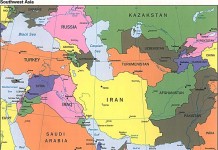Context
 There are signs that Gulf countries, especially UAE and Saudi Arabia, are becoming increasingly concerned about where the Arab Spring might be heading next. Both countries are not taking any chances in this regard. In addition, the Gulf States are also deeply anxious about the backlash from Syria, repercussions of dramatic changes in Egypt, and Iran’s nuclear program.
There are signs that Gulf countries, especially UAE and Saudi Arabia, are becoming increasingly concerned about where the Arab Spring might be heading next. Both countries are not taking any chances in this regard. In addition, the Gulf States are also deeply anxious about the backlash from Syria, repercussions of dramatic changes in Egypt, and Iran’s nuclear program.
During the Gulf Cooperation Council (GCC) meeting in December 2011, held in Riyadh, King Abdullah had commented, “No doubt, you all know we are targeted in our security and stability.” In May 2011, GCC showed readiness to admit two other pro-democracy afflicted states, Jordan and Morocco, to the group. In March 2011, GCC offered $10 billion dollars each to the member states of Oman and Bahrain to check the protests there.
Just last month, UAE authorities busted a cell whose members belonged to Saudi Arabia and the emirates. The militants were planning to carry out attacks across the Gulf region.
To further preempt the consequences of these negative trends, Saudi Arabia in particular is pushing the GCC towards a union and a confederation: to cooperate and coordinate their foreign policy and increasingly, security affairs. “We aspire to a strong union with integrated economies, a joint foreign policy and a common defense system,” Prince Salman Bin Adbul Aziz commented in December 2012 at the annual GCC Summit held in Manama, Bahrain. At the meeting, the Gulf ministers agreed on developing a unified military command and the creation of Peninsula Shield Force that according to some will pave the way for a Gulf Army.
There remain many political and bureaucratic challenges in the full implementation of this vision. However, the Gulf States are aggressively positioning themselves to meet the emerging threats and the evolving Middle East.



